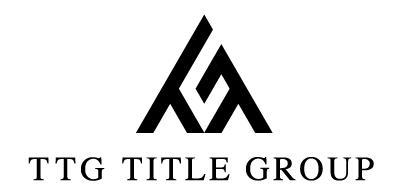The Property Pulse Blog
Welcome to "The Property Perspective," where expert insights meet real estate innovation, empowering you to navigate the market with confidence.

How Much House Can I Realistically Afford?
Buying a home is one of the biggest financial decisions you'll ever make — and one of the most exciting. But before you fall in love with a dream home, it’s essential to answer one critical question: How much house can I realistically afford?
The right answer isn't just about the maximum loan a lender will approve you for. It's about balancing your income, debt, lifestyle, and long-term financial goals to ensure you can comfortably afford your home now — and in the future. Here’s a step-by-step guide to help you figure it out.
1. Understand Your Income
Your income is the foundation of your home-buying budget. Lenders typically look at gross monthly income (before taxes) to determine affordability. But it’s important for you to think about your net income — the amount you actually take home after taxes, insurance, retirement contributions, and other deductions.
A good rule of thumb:
Your monthly mortgage payment should not exceed 28% of your gross monthly income.
Example:
If you earn $6,000 per month before taxes, aim for a mortgage payment of no more than $1,680.
But remember — this should include not just the loan principal and interest, but also property taxes, homeowners insurance, and possibly HOA fees.
2. Calculate Your Debts
Mortgage lenders also look closely at your debt-to-income ratio (DTI) — the percentage of your monthly income that goes toward paying debts like student loans, credit cards, car loans, and, eventually, your mortgage.
Ideally:
Your total monthly debt payments (including your new mortgage) should be below 36% of your gross income.
If your DTI is too high, you may need to reduce your debts or lower your home price range.
Example:
If your monthly income is $6,000, all your debt payments combined should be under $2,160.
3. Factor In Your Lifestyle
Your budget isn't just numbers on paper — it's your real life. Be honest about your spending habits and lifestyle preferences.
Ask yourself:
Do you love traveling frequently?
Are you planning to start a family?
Do you have expensive hobbies or future expenses like college tuition or starting a business?
A lender’s approval doesn’t account for these lifestyle choices. Only you can balance your house payment with the life you want to live.
A beautiful home isn’t worth sacrificing vacations, hobbies, or peace of mind.
4. Plan for Upfront and Ongoing Costs
Buying a home involves more than just the mortgage. Don't forget about:
Down payment (typically 3%–20% of the purchase price)
Closing costs (around 2%–5% of the loan amount)
Home maintenance and repairs (experts recommend budgeting 1%–2% of the home’s value annually)
Additionally, future property taxes, homeowners association (HOA) fees, and utility costs may vary widely depending on the home and location you choose.
Having an emergency fund — ideally enough to cover 3–6 months of expenses — is also crucial before you take on a mortgage.
5. Use Online Calculators (Wisely)
Mortgage affordability calculators can provide a helpful estimate of what you might afford based on your income, debts, and loan terms.
However, always double-check the assumptions behind these calculators. Many don't include property taxes, insurance, or HOA fees.
Final Thoughts: Aim for Comfort, Not Stretch
While it’s tempting to maximize your purchasing power, a comfortable mortgage will give you financial flexibility, peace of mind, and the freedom to enjoy your life inside — and outside — your new home.
By carefully considering your income, debts, lifestyle, and all associated costs, you’ll be empowered to make a smart, sustainable decision that fits your true budget — not just your loan approval.
Because at the end of the day, the best house you can afford is the one that leaves you free to enjoy life.

Secure & Prestigious Closing Experiences for Real Estate Professionals and Property Owners.
Contact Us
Address:
700 Pennsylvania Avenue, S.E., 2nd Floor
Washington, D.C. 20003
Phone:
202.830.0024
Copyright © 2024 TTG Title Group

